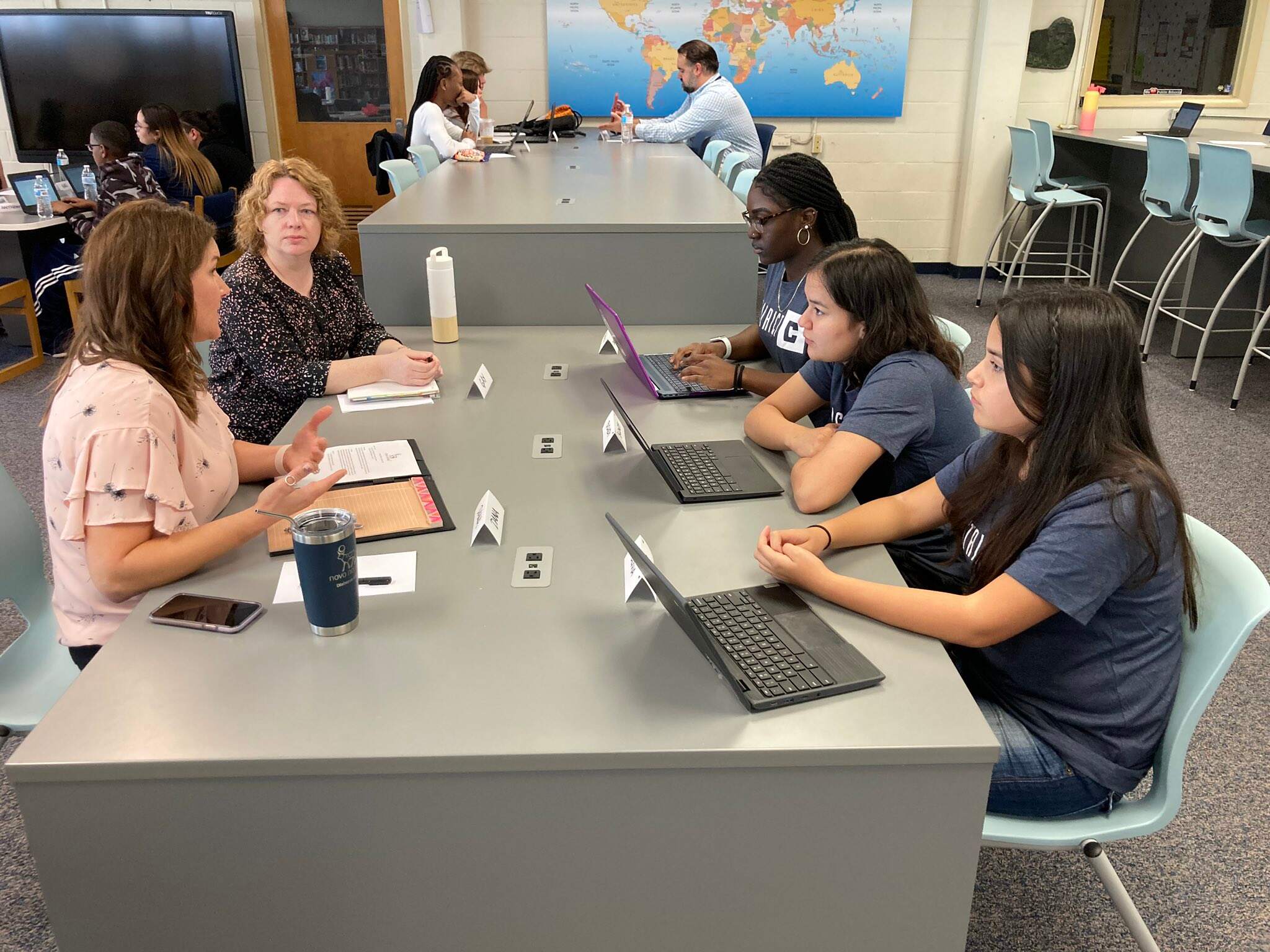Work to Learn, Learn to Work

Why WBL?
Work-based learning (WBL) is an educational strategy that provides students with real-life work experiences where they can apply academic knowledge, refine workplace skills, and build effective relationships. An integral part of Career & Technical Education (CTE), WBL experiences occur in a work setting, typically at an employer’s worksite. WBL experiences compliment school-based instruction in an attempt to show students the “why” of what they are learning. WBL provides a range of opportunities for career awareness, exploration, preparation, training, and helps students graduate work- and life-ready.
Benefits of Work-Based Learning for Students
- Develop positive relationships with adults that support growth and development
- Network for gainful employment opportunities
- Gain hands-on learning work experience
- Develop employability skills
- Increase exposure to new environments & expectations
Benefits of Work-Based Learning for Employers
- Develop a more robust talent pipeline
- Access a diverse and innovative labor pool
- Earn a reputation for being a great place to work
- Build your own workforce pipeline while supporting your community
- Engage and motivate current employees through mentorships
Types of WBL
- Job Shadow – Typically reserved for juniors and seniors, students observe a worker on the job for a half or full day, unpaid experience. This experience is coordinated by the Career Development Coordinator.
- Mentorship – Students develop a mentor/mentee relationship with a professional on a more frequent basis than job shadowing. The frequency varies and the experience is unpaid.
- Internship – Students complete tasks on-the-job. A high school credit can be earned for 120 work experience hours, and the internship can be paid or unpaid.
- Cooperative Education – Students work in a job aligned to their current CTE program of study. A high school credit can be earned for 120 work experience hours, and the internship is paid.
- Youth Apprenticeship – Students participate in education and training approved by ApprenticeshipNC. A high school credit can be earned for 120 work experience hours, and the apprenticeship can be paid or unpaid. The following apprenticeship programs are available to Johnston County students:
- BioWork Pre-Apprenticeship – Students earn the BioWork Continuing Education certificate from Johnston Community College while in high school which can lead to employment as a biotechnician with pharmaceutical companies like Grifols and Novo Nordisk. Juniors and Seniors may apply using JCC’s CCP Application Process.
- Black’s Tire Pre-Apprenticeship – Juniors and Seniors take relevant high school courses while working in an entry-level position with Black’s Tire and Auto Service. See your school CDC to apply. Informational Flyer
- Caterpillar Pre-Apprenticeship – Coupled with instruction at Johnston Community College, students train and work as an assembler at Caterpillar. Students must apply in early Fall of their Junior year. 2023 Informational Flyer
- HVAC, Electrical, Plumbing Apprenticeship – Graduated seniors begin taking classes at Johnston Community College while working as an HVAC, Electrical, or Plumbing apprentice with Johnston County Public Schools Facility Services. Students must apply during their senior year and enroll in the apprenticeship prior to graduation. If positions are available, they will be listed on the JCPS job listings under “apprentice”. See your CDC to learn more.
- Lineworker Pre-Apprenticeship – Seniors begin monthly Saturday trainings towards a lineworker career through a partnership with Electricities and Nash Community College. Learn more and apply at lineworkpays.com.
Students should contact their school’s Career Development Coordinator or School Counselor in early Fall to learn more and apply.
Employers can learn more by reviewing the JCPS CTE Work-Based Learning Guide for Employers or contacting Kathryn Farrior, Workforce Development Specialist ([email protected]).
CTE + Employers = A Strong Workforce
Johnston County Public Schools relies on strong partnerships with local employers, post-secondary education institutions, and community leaders to facilitate students’ career development progression and career preparedness. These partnerships help us make learning more relevant by connecting students to today’s workplaces and the skills needed to thrive in them.
How Can You Support JCPS Efforts?
- Sharing your expertise as a guest presenter
- Opening your doors for tours and job shadowing
- Accepting student interns for paid or unpaid work experiences
- Participating in mock interviews, mentorships, job fairs, and career fairs
- Welcoming teachers for tours and externships to enhance their content knowledge
- Developing a pre-Apprenticeship or Apprenticeship program
- Providing program guidance on a CTE advisory council
- Advocating for CTE programs and funding for the benefit of the overall economy
Interested in providing opportunities for students?
You can help JCPS provide opportunities for students by completing the JCPS WBL Employer Registration at the link below.